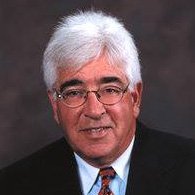Something Special
January 19, 2012
 One of the great pleasures in life is the Sunday edition of the New York Times. It is high up on my list of essentials, and while I must admit that I don’t always read it on the day purchased, it does stay on my night table until I eventually work my way through it. I draw your attention to a recent article featuring comments by Samuel J. Palmisano, the departing chief executive officer of IBM. It caught my eye because I am always interested in learning the strategies of wildly successful companies. In the interview, Mr. Palmisano mentions four guiding principles that serve as the core of his management style–two of which I feel are most relevant to dentistry.
One of the great pleasures in life is the Sunday edition of the New York Times. It is high up on my list of essentials, and while I must admit that I don’t always read it on the day purchased, it does stay on my night table until I eventually work my way through it. I draw your attention to a recent article featuring comments by Samuel J. Palmisano, the departing chief executive officer of IBM. It caught my eye because I am always interested in learning the strategies of wildly successful companies. In the interview, Mr. Palmisano mentions four guiding principles that serve as the core of his management style–two of which I feel are most relevant to dentistry.
First– “why would someone spend their money with you–so what is unique about you?” There certainly is no lack of dentists out there, so how do you separate yourself from the competition? It is all about building relationships that are based on trust. The patients must feel and perceive that the doctor truly cares about their well-being and is not motivated by dollars. This doctor–in the most low key way–must be able to explain the need for dental treatment–what are the benefits and what are the consequences of not moving forward. The doctor needs to be skilled at presenting choices because while people like to buy, they do not like to be sold. The patient needs to feel comfortable that the doctor possesses excellent clinical skills.
Second– “why would someone work for you?” I have always felt that it is the responsibility of the doctor to create an environment where staff can flourish. This wonderful workplace allows people the independence to make important decisions, yet ultimately holds them responsible for their actions. This workplace will reward and recognize excellence with bonuses and incentives. This workplace will promote the concept of teamwork. I revisited an article that I wrote in 1997 about staffing in the dental office, and I was pleased to realize that my thoughts haven’t changed all that much. The bottom line is that happy staff are great emissaries for your practice, and when patients interact with happy staff, they instantly realize they are in the right place.
As the new year begins, it would be time well spent to analyze the essence of what you and your practice are all about – what is unique – and what is remarkable – and how can you better convey that image to your patients.
Busy or Profitable? Your Choice.
January 5, 2012
 My most recent blog post listed four ways to increase revenue in a dental practice. In retrospect, I would like to add a fifth. It is an important strategy that relates specifically to the topic of efficiency in the doctor’s appointment schedule for a busy dental practice.
My most recent blog post listed four ways to increase revenue in a dental practice. In retrospect, I would like to add a fifth. It is an important strategy that relates specifically to the topic of efficiency in the doctor’s appointment schedule for a busy dental practice.
The most important management system in a dental practice is scheduling, because the only thing we have to sell is our time. Yet over the years, I have observed that many practices are terribly inefficient in the way the doctor is scheduled to deliver treatment, wasting upwards of two hours every day. I didn’t say they weren’t busy–I said they weren’t efficient. There is a huge difference between being busy and being profitable.
I believe that when an effective scheduling system is introduced into a practice:
• the stress level of every one can be significantly reduced.
• the appointment backlog can be cut in half.
• the need for an associate is often eliminated.
• production is increased dramatically without raising fees or altering the mix of the practice.
.• every hour in the practice becomes a productive hour no matter what procedures are being performed.
In the two and a half years since I began writing blog posts, I do not believe that I have ever touted my own services. But this whole topic of how to increase revenue got me thinking. Teaching other busy dentists productive scheduling techniques was how I began my consulting career 22 years ago. So if you are feeling maxed out – perhaps scheduled out two to three weeks or more- feeling overworked and can’t seem to find the way to get to the next level of profitability other than working more hours – you might want to consider speaking with me. But first read this to see if you qualify.
As Yogi Berra said, “It’s tough to make predictions, especially about the future”. But after seeing the significantly increased annual revenues in practices that have learned and implemented the Jodena advanced scheduling rules, this might be worth your consideration.

